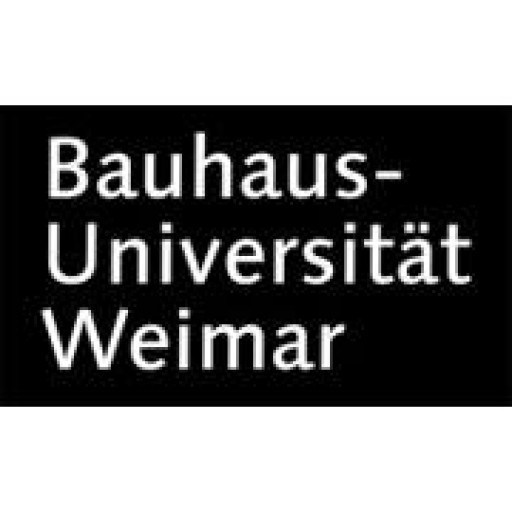Photos of university / #universitaet.tuebingen
Applied and Environmental Geoscience at the University of Tübingen offers students an in-depth exploration of Earth's processes, resources, and environment through a multidisciplinary approach combining geology, ecology, and environmental science. The program is designed to equip students with a comprehensive understanding of geological phenomena, environmental challenges, and sustainable management practices essential for addressing issues such as climate change, resource depletion, and environmental protection. Students will engage in practical training through fieldwork, laboratory analyses, and modern geoscientific methods, enabling them to analyze geological data, interpret environmental impacts, and develop innovative solutions. The curriculum covers core topics including mineral and energy resources, groundwater and soil contamination, natural hazards, and geohazards, as well as the sustainable utilization of Earth's resources. In addition, the program emphasizes the importance of interdisciplinary collaboration, integrating principles from biology, chemistry, and physics to provide a holistic view of environmental systems. Graduates will be prepared for careers in environmental consultancy, resource management, geotechnical engineering, and research institutions. The faculty at the University of Tübingen is renowned for their expertise and commitment to high-quality teaching and research, providing students with access to cutting-edge technology and a dynamic academic environment. This programme is ideal for motivated individuals passionate about understanding and protecting our planet's geoscientific resources while contributing to sustainable development. By the end of their studies, students will have developed critical analytical skills, practical experience, and a deep understanding of the complex interactions within Earth's systems. Whether aiming for further academic research or entering the professional workforce, graduates will be well-equipped to face contemporary environmental challenges with knowledge, innovation, and responsibility.
The AEG course is a 2-year program, beginning in the winter semester of each year. It consists of a suite of 6 compulsory modules (36 credits), 9 elective modules (54 credits) and a Master thesis (30 credits).
The first semester with the compulsory modules "Hydrogeology", "Aquatic and Environmental Chemistry" and "Environmental Modeling 1" introduces students to the necessary theoretical and quantitative aspects of environmental and applied geosciences. The following semesters allow students an individual focus of studies. By choosing the appropriate elective modules students can specialize in
- Hydrogeology
- Environmental Chemistry and Environmental Microbiology
- Environmental Physics and Environmental Modeling
In the compulsory modules "Scientific Practise 1+2" and "Scientific Presentation" students gain additional practical interdisciplinary skills, and benefit from close interaction with staff and research groups as well as an early start of the master thesis in the 3rd semester.
Entrance requirements
- Bachelor's degree (or equivalent) in Geosciences, Geoecology, Geophysics, Mineralogy, Physical Geography, Soil Science, Mathematics, Physics, Chemistry, Biology, Computer Sciences, Civil Engineering or a field related to environmental sciences
- Good background in mathematics, chemistry, and physics
- Overall grade (CGPA) equivalent to or better than 2,5 German grading system
- English language proficiency: English test certificate (minimum TOEFL iBT 79 points or IELTS 6.0) or another proof of proficiency equivalent to level B2 of the Common European Framework CEFR.
The financing options for the Applied and Environmental Geoscience program at the University of Tübingen primarily include government-funded student financial aid, scholarships, and personal funding. As a public university in Germany, tuition fees for international students are generally not charged for undergraduate programs, which significantly reduces the financial burden on students. However, students are responsible for covering living expenses, which include accommodation, food, transportation, health insurance, study materials, and other personal costs. The estimated monthly living costs in Tübingen are around 850 to 1,200 euros, depending on individual lifestyle choices.
Students can apply for various scholarships offered by the German government, the DAAD (German Academic Exchange Service), or international scholarship organizations, which can help offset living costs or provide partial tuition fee coverage for postgraduate students. Additionally, the university itself or external foundations may provide merit-based or need-based financial aid for outstanding students or those facing financial hardship. Students are encouraged to explore part-time employment options available locally, as Germany permits international students to work for up to 120 full days or 240 half-days per year, which can help supplement their income.
Furthermore, students can consider student loans or sponsorships from their home country, although these options depend on individual circumstances and agreements. Financial planning is advised prior to relocation, including an estimate of initial accommodation costs, health insurance coverage, and daily expenses. Many students also receive support from family or community organizations. International students should check the specific visa requirements, which often mandate proof of sufficient financial means to support their stay during their studies in Germany.
In summary, for the Applied and Environmental Geoscience program at the University of Tübingen, funding is mainly through personal resources, scholarships, and part-time work opportunities. The low or no tuition fees significantly reduce financial barriers, but students must secure adequate financing to cover living expenses. Careful financial planning, early scholarship application, and understanding of permissible work hours play crucial roles in successfully financing the studies.
Job perspectives
Focused on quantitative and multidisciplinary approaches the AEG program offers graduates a wide platform for an academic career as well as excellent job perspectives in the private sector. Main fields of employment are:
- Further academic research career
- Environmental Consultant in areas such as Brown field redevelopment, Characterization of sites (hydrogeology, geophysics, chemical and microbiological analysis), Land Recycling/Land Development, Project development, Environmental risk assessment, Modeling of flow and reactive transport in subsurface systems, Environmental analytics
- Environmental Protection Agencies









